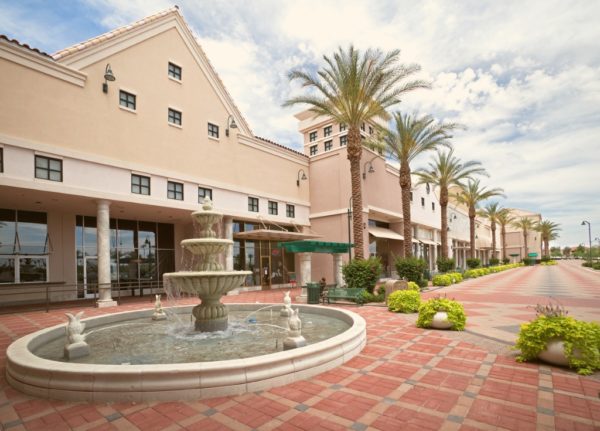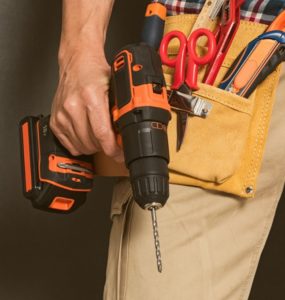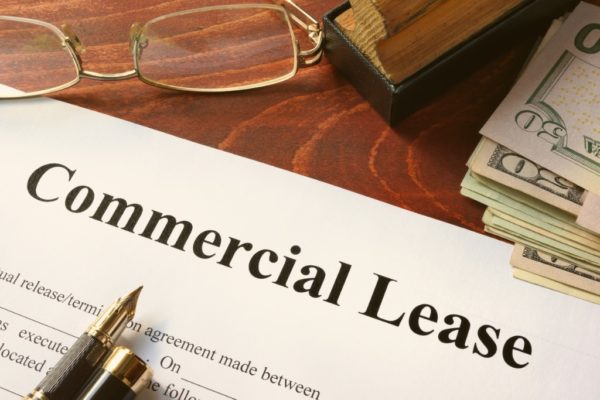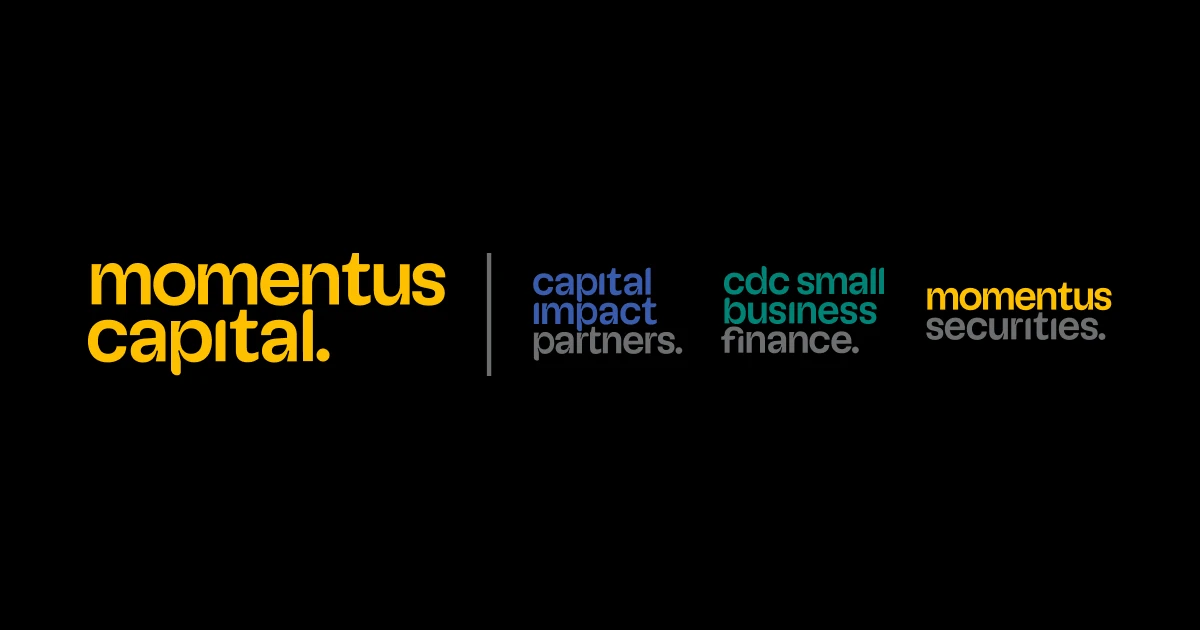For business owners, rent is likely one of your biggest expenses. If you’re about to sign your first commercial lease or plan on moving to another leased space soon — make sure you’re considering these 8 important factors before signing a commercial lease agreement, says Rich Kraus, a senior business advisor at leading lender and nonprofit CDC Small Business Finance.
1) Who will be your future neighbors?

Chances are, the commercial space you’re considering is in some type of center. In other words, you’ll have neighbors that can directly or indirectly impact the success of your business. Pause and ask yourself:
- What is the caliber or draw of the other tenants?
- How will your business play into the existing tenant dynamics?
- What are the usual peak times for the other tenants vs. the expected peak times for your business?
- Will other tenants have similar operating hours to yours? (Don’t allow the lease to dictate your hours.)
- Are there any current vacancies? Why is that?
- Is there an anchor tenant? How much time is left on their lease? (An anchor tenant is usually a well-known brand name and chain.)
2) What’s around the commercial space?

Every commercial center has its own flow, personality and quirks. Early on in your research, you’ll want to familiarize yourself with these qualities. Before signing a commercial lease, also consider these questions:
- Can customers get in and out of the center easily?
- What are the traffic patterns like at the center?
- Is the area prone to trash and loitering?
- Are there loading/unloading issues, due to fellow tenants, at certain times of day?
- Is there sufficient parking for customers? A good rule of thumb: five spaces per 1,000 square feet.
- How long does the average customer stay? For example, with a dry-cleaning client, they’ll stay about five minutes whereas a restaurant diner can stay put for about 1 hour.
- Have you been to the center in the daytime and nighttime to gather intel?
- Have you spoken to current tenants for their opinions?
- Is there any existing or future construction in the area that could affect the center’s business?
3) How responsive is the landlord?
 Commercial leases are often multi-year agreements, averaging about five years, depending on the location and market conditions. This means it’s monumentally importantly that you and your future landlord are a good match. Before making the long-term lease commitment, ask yourself:
Commercial leases are often multi-year agreements, averaging about five years, depending on the location and market conditions. This means it’s monumentally importantly that you and your future landlord are a good match. Before making the long-term lease commitment, ask yourself:
- How responsive is the landlord when it comes to resolving issues?
- Are trash cans and dumpsters emptied sufficiently?
- Are the center’s lighting, parking lot and signs maintained?
- Is there adequate access for deliveries through the back vs. the front of store?
4) What are the center’s common rules?
At some point in your research, you’ll likely encounter the term CC&Rs. They stand for Covenants, Conditions and Restrictions. They’re basically a set of rules set by the landlord for the tenants to follow. Make you consider these questions before signing a commercial lease:
- Does the center I’m interested in have CC&Rs?
- Have I read them? Do I understand the outlined rules?
- In the CC&Rs, is there any language on sign restrictions, hours of operation and noise?
4) Do you know what these mean: CAMs and NNNs?
 If you’ll be renting space at a commercial center, also get familiar with common area maintenance fees, also known as CAMs. These fees are charged to the tenant and usually cover repairs and the maintenance of the property.
If you’ll be renting space at a commercial center, also get familiar with common area maintenance fees, also known as CAMs. These fees are charged to the tenant and usually cover repairs and the maintenance of the property.
Another common acronym you’ll see is NNN. This stands for triple net lease, an agreement that requires the tenant to pay the net amount for three types of costs. These costs include: net real estate taxes on the leased property, net building insurance, and net common area maintenance.
Keep these questions in mind before you sign your rental agreement:
- Who is responsible for the maintenance of the HVAC and roof?
- Who is responsible for remedying graffiti on the exterior of your unit?
- Is security included? If so, what kind of on-site/patrol is included.
- Is the property in a flood zone? How does this affect insurance costs?
- Is there any ongoing litigation against landlord and/or between tenants and landlord?
- Who is managing the property and who will be your point of contact for issues such as repair?
- Are CAM fees proportionate among the tenants? If not, why not?
5) Have you read the commercial lease?
 Just because a landlord is asking for a certain lease price doesn’t mean it’s always reasonable. Protect yourself by getting comparables, or comps, from your leasing broker to make sure you’re paying a fair price.
Just because a landlord is asking for a certain lease price doesn’t mean it’s always reasonable. Protect yourself by getting comparables, or comps, from your leasing broker to make sure you’re paying a fair price.
Aside from asking about monthly rent, also dig deep into these factors:
- As part of the agreement, can I get any concessions such as temporarily reduced or free rent, a tenant improvement allowance, etc.?
- What are the terms on the presence of monument signs? (These are signs showing the tenant names typically located by the main entrance.)
- Will my business have dedicated parking?
- Should I want to expand, will I get the first right of refusal?
- Will I be able to sublease the space?
- Is there language that prohibits a like use in the same center?
And the list goes on. Make sure you are working with a team of professionals who can help you during the leasing process, from the leasing broker to your accountant.
Related: The best way to protect yourself before starting lease buildout
6) What about the inside of the space?

- Do you want the existing furniture and fixtures? If so, are you certain they’re included?
- If you don’t want the fixtures, who pays to have them removed?
- If buildout is required for your business, get in touch with an architect and building contractor for quotes and a timeline.
- Chances are, construction will require permitting. Have you researched what type of permits you’ll need before you start construction? What’s the typical turnaround time to get them?
7) Have you taken these next steps yet?
- Don’t put all your eggs in one basket: Identify and negotiate for more than one possible site or space, in case your ideal location doesn’t pan out.
- Get the documents yourself. Instead of relying on the legal description of the center, make sure you get your hands on the plot map of the center.
- Dig into the stats. Get crime, traffic counts, household income and other important data that relates to your business’ future home. These should be provided by your leasing broker.
- Know what you need. Research your ideal square footage and don’t go over it.
8) What are the big takeaways?
- Have someone in your corner. Get a commercial real estate agent or broker to represent you. The property’s landlord pays this expense.
- Get an extra pair of eyes. Have area estate attorney review the lease.
- Understand the financial commitment. Let’s look at the numbers. With fees and annual increases, $3,500 in rent per month over a 5-year period could total $210,000.
- Know your responsibility. Realize the significance of providing a personal guarantee on the lease.
- Embrace the adage “location, location, location.” This will make or break your business and you can’t change it after you sign on the dotted line.
Are you looking for a business loan to finance tenant improvements or anything related to a future commercial lease? CDC Small Business Finance offers several loan options for business owners in this situation.
Tell our loan experts about your business, and they’ll work to match you with a financing plan that best suits you. Let’s talk! Reach us at loaninfo@cdcloans.com or (619) 243-8667.
In case you missed it:



